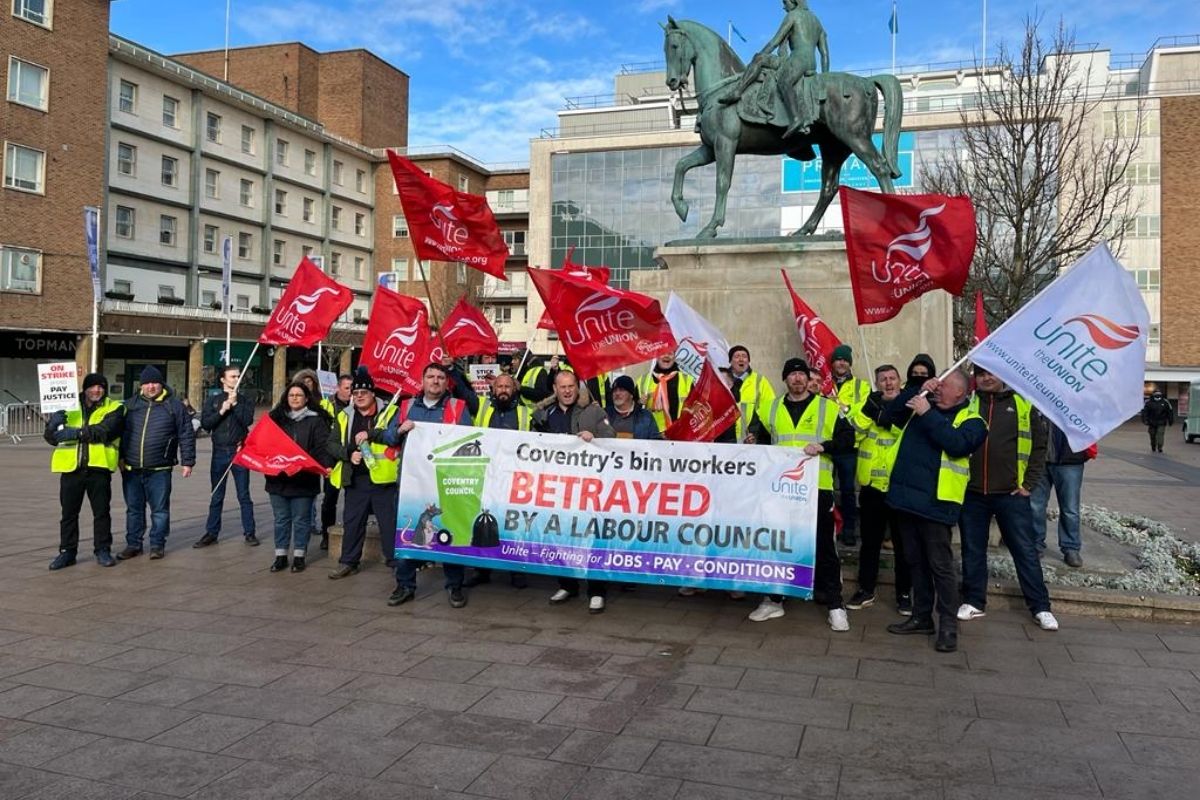A deadly combo of austerity and inflation is pushing councils towards bankruptcy, fuelling further attacks on local government workers. With Starmer’s Labour doing nothing to oppose the cuts, it is up to the trade unions to lead the fightback.
In recent weeks, council leaders across England have stated that rising inflation is fuelling a multi-billion-pound budget gap. This threatens to provoke a further breakdown in public services, and push even more local authorities into bankruptcy.
Councils have been operating under a brutal regime of austerity for over a decade. Most are already stripped to the bone.
The cost-of-living crisis, however, will force even residents in working-class communities into relying on council services. Already, there is evidence of greater demand for services than seen in years.
If this is the state of play now, how dire will the situation look in the months and years to come?
As councils around the country begin their budget assessments, we will likely see further job losses and cuts to so-called ‘non-critical’ services.
Last month, Norwich City Council said they will make £5 million in cuts to housing repairs services, despite an already-existing backlog of overdue jobs.
Bully behaviour

In these conditions, many councils are adopting the same tactics as private-sector bosses, pitting themselves against residents and employees in order to push through cuts.
After years of austerity, with pay for local government workers failing to keep up with rising living costs, council employees such as cleaners and bin collectors have shown that they are more than willing to take strike action.
Since January, for example, HGV drivers at Coventry city council have been embroiled in an all-out strike over wages, following the council’s refusal to pay market rates.
Scandalously, from the beginning, the Labour-led council has waged a disgusting strike-breaking campaign. They have lied about the strikers’ earnings, and have pumped millions into paying for scab labour, provided by a company that is owned by the council.
Elsewhere, Tower Hamlets council have deployed brutal ‘fire and rehire’ tactics against employees, in order to force them onto worse terms and conditions. That this took place in the midst of the pandemic only makes such behaviour all the more contemptible.
Scourge of outsourcing
Alongside attacks on pay and conditions, the scourge of outsourcing is also on the rise. In the early days of austerity, this stealthy privatisation was encouraged in order to ‘modernise’ councils and reduce running costs. Instead, what has occurred is failure after failure.
In 2011, Barnet council was told to find over £10 million to cover a claim made against it by Catalyst Housing, in relation to a contract dispute over care buildings. This followed a two-year industrial dispute, when Catalyst Housing’s partner organisation – the Fremantle Trust – slashed care workers’ salaries by £300 a month, in an attempt to improve finances.
Elsewhere, families of service users were kicked out of a meeting about social care cuts, when the board in charge of Barnet’s social care service said that they didn’t have to speak to them, since it represented a private company.
Another example is the contract awarded to Reloc8 by nine councils – of which Waltham Forest is the largest customer – to find temporary accommodation for homeless residents, by forcing them to move across the country. The attitude taken by these callous councils towards the homelessness crisis, in other words, is one of ‘out of sight, out of mind’.
Rather than target runaway rental prices and the need for more affordable homes, these councils choose to target vulnerable residents.
We say: it is ruthless landlords who squeeze every penny they can out of renters who should be given the boot, not the homeless!
Growing militancy

These Labour councils excuse themselves by claiming that they are simply forced to operate under the diktats of the Tories. Until we have a Labour government, they say, their hands are tied.
But Labour councils do not have to accept this fate as the handmaidens of Tory cuts. Instead, councillors should be acting in solidarity with their residents, refusing to implement any austerity mandated by Whitehall and Westminster, and passing no-cuts budgets for the services that are desperately needed by working-class communities.
With Starmer’s Labour unwilling to offer such a fighting programme or perspective, however, the trade unions must pick up the gauntlet and lead the charge on behalf of the wider working class.
As has been seen with the recent RMT strikes, once one section of workers begins to enter the struggle, it can – and will – rapidly inspire confidence in others to do the same.
It might seem that such a mood has not reached the public sector, given the result of last year’s Unison local government pay ballot, where only around 1-in-7 members voted. To understand what this vote represents, however, we need to look beyond the surface.
The strong support in favour of strike action – over 70% amongst those who voted – shows that the problem is not the will to fight: it is a lack of confidence on the part of workers that, if they do take up arms, the union will back them up.
Workers have been burnt by the ‘new realism’ of past union leaders, who have consistently drawn back from struggle and poured cold water on any calls for action.
In order for rank-and-file union members to be mobilised, they need to be convinced that if they take on the bosses, they can win.
You only have to look at the example of Unite to see this.
Under Sharon Graham’s leadership, 100% of Unite members in Coventry have voted to continue with a summer of strikes until a genuine agreement is reached. This shows the determination of rank-and-file members when supported and instilled with confidence by fighting union leaders.
Strike back
The trade union leaders – in local government, in the public sector, and across the labour movement – must now formulate a battle plan to fight the cuts.
As a first step, all the struggles in local councils should be brought under one banner, with coordinated action between the unions.
Employers have often relied on the existence of multiple unions in local government in order to ‘divide and rule’ and push through attacks on different groups of workers. Joining up our action is the only answer to this.
This should be linked to the demand for a one-day public sector strike, in order to demonstrate to workers across the country what power we hold.
This, in turn, would prepare the ground for a mass campaign of united struggle, with the aim of toppling this degenerate Tory government once and for all, and fighting for a clear socialist alternative to austerity, based on the nationalisation of the banks and the expropriation of the billionaire class.
Instead of council bankruptcies, cuts to services, and attacks on workers’ jobs, pay, and conditions, we say: make the super-rich pay for this crisis!






